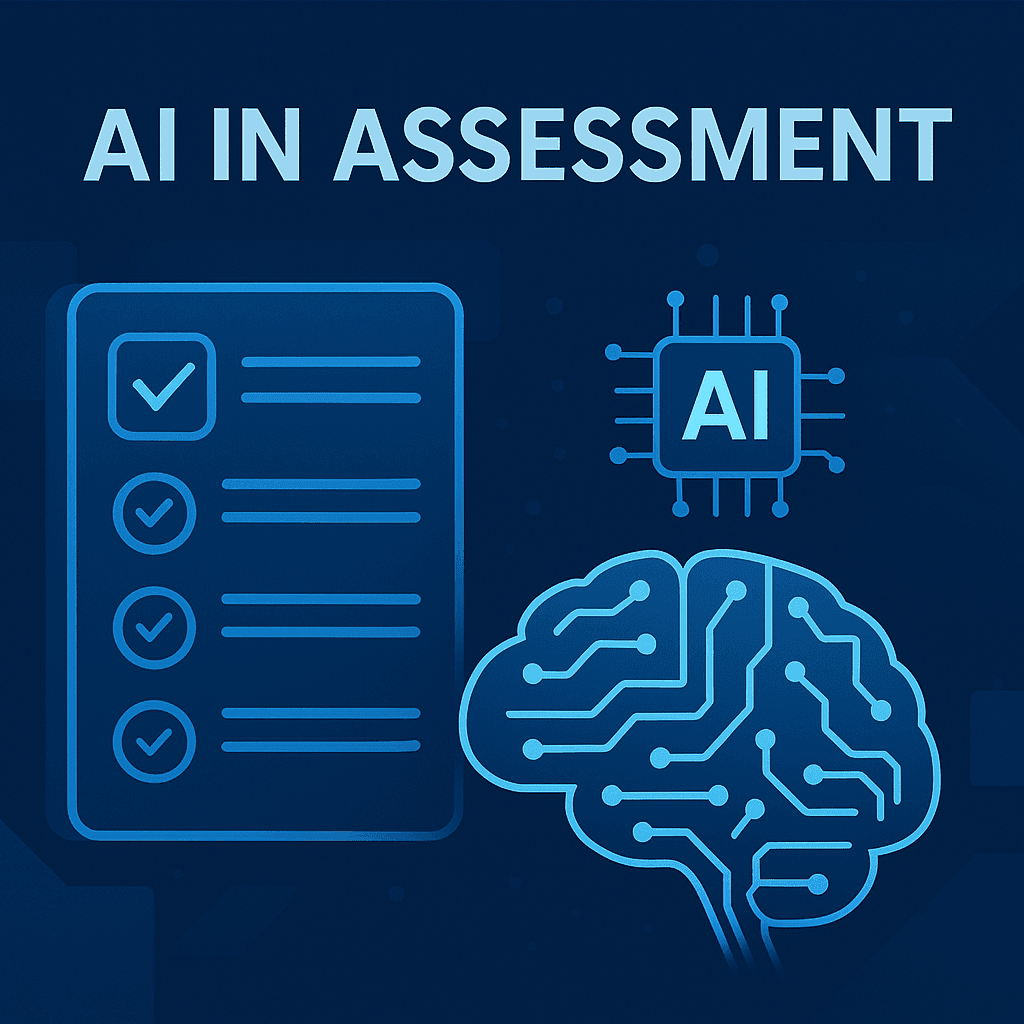AI in assessment is rapidly becoming one of the most influential innovations in modern education. With technology advancing at an unprecedented rate, educational institutions across the globe are reimagining the way student learning is evaluated. Traditional models of assessment—often rigid, time-consuming, and one-size-fits-all—are now giving way to flexible, real-time, and data-rich evaluation methods, all powered by artificial intelligence.
At the heart of this transformation is the ability of AI in assessment to provide immediate and personalised feedback. Unlike conventional exams where students may wait days or weeks for results, AI can evaluate responses in seconds, identifying strengths, weaknesses, and areas for targeted improvement. This instant feedback loop enhances learning efficiency and encourages deeper student engagement.
Another remarkable feature of AI in assessment is its adaptability. Intelligent systems can now tailor questions based on a learner’s ability, behaviour, and performance, ensuring each student is assessed fairly and appropriately. For example, adaptive quizzes powered by AI can adjust difficulty levels in real time, offering an accurate representation of a learner’s competence. This not only helps in gauging subject mastery but also fosters confidence and motivation.
Furthermore, AI in assessment plays a vital role in ensuring fairness and consistency. Traditional marking methods, especially for essays or open-ended tasks, are prone to human error and bias. AI-driven grading tools offer standardised marking, reducing the influence of subjective judgement and increasing reliability. This is particularly important in high-stakes assessments where objectivity is paramount.
The integration of AI also supports a move towards continuous and formative assessment, replacing outdated one-off exams. Learning analytics generated from AI tools can track student progress over time, offering a comprehensive view of growth and learning gaps. Educators can then adjust teaching strategies based on these insights, making learning more responsive and targeted.
A growing concern in education today is academic dishonesty, especially with the rise of generative AI tools like ChatGPT. Here too, AI in assessment proves invaluable. Advanced plagiarism detection algorithms and semantic analysis engines can now detect AI-generated content, paraphrased text, and unnatural language patterns with impressive accuracy. This helps institutions uphold academic integrity without stifling innovation in how students engage with technology.
In addition to evaluating student performance, AI is now being used to design assessments. Educators can employ AI-powered tools to generate exam questions, learning activities, and marking rubrics aligned with curriculum outcomes. These tools save time and ensure alignment between assessment tasks and learning objectives, a concept known as constructive alignment.
Yet, with all these advantages, it is essential to address the ethical implications of AI in assessment. Data privacy, algorithmic transparency, and potential bias in machine learning models must be managed carefully. Trust in AI systems must be earned through clear policies, ethical deployment, and continuous human oversight. AI should support educators—not replace them.
Looking ahead, the role of AI in assessment will only grow. We are entering an era where assessment is not a final stage of learning but an ongoing, dynamic process. Tools such as digital dashboards, predictive analytics, and smart learning environments will empower educators to personalise learning experiences like never before.
The shift toward AI-enhanced assessment is not merely a technological upgrade—it is a paradigm shift. It requires a rethinking of educational models, teacher training, and institutional strategies. Schools, colleges, and universities must invest in capacity building to ensure that faculty and staff can effectively use AI tools for meaningful learning outcomes.
In conclusion, AI in assessment is transforming education into a more inclusive, equitable, and efficient domain. From automated grading and personalised feedback to plagiarism detection and adaptive testing, the potential is enormous. For educators and institutions willing to embrace change, this revolution offers not just innovation, but opportunity.



Responses